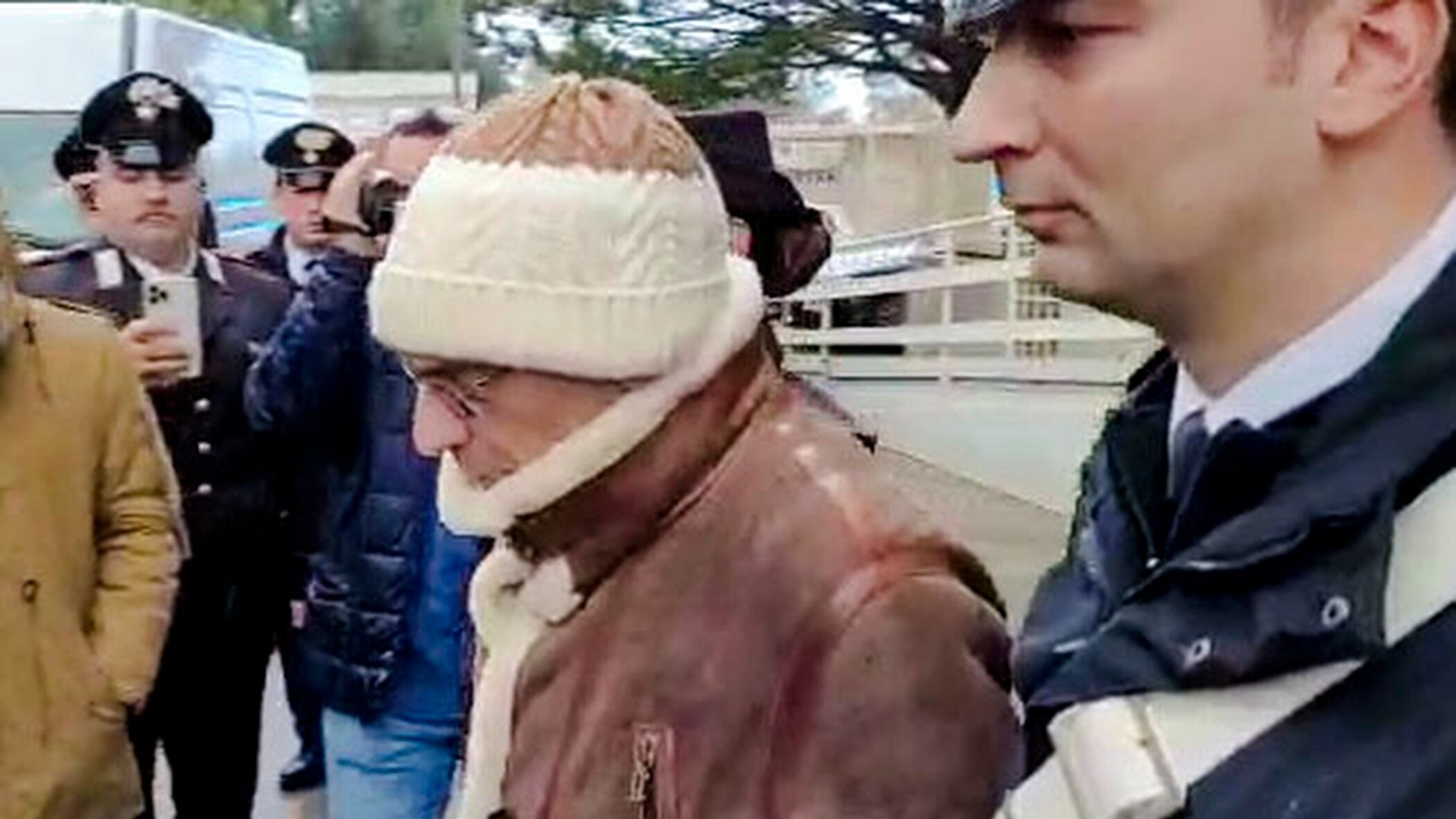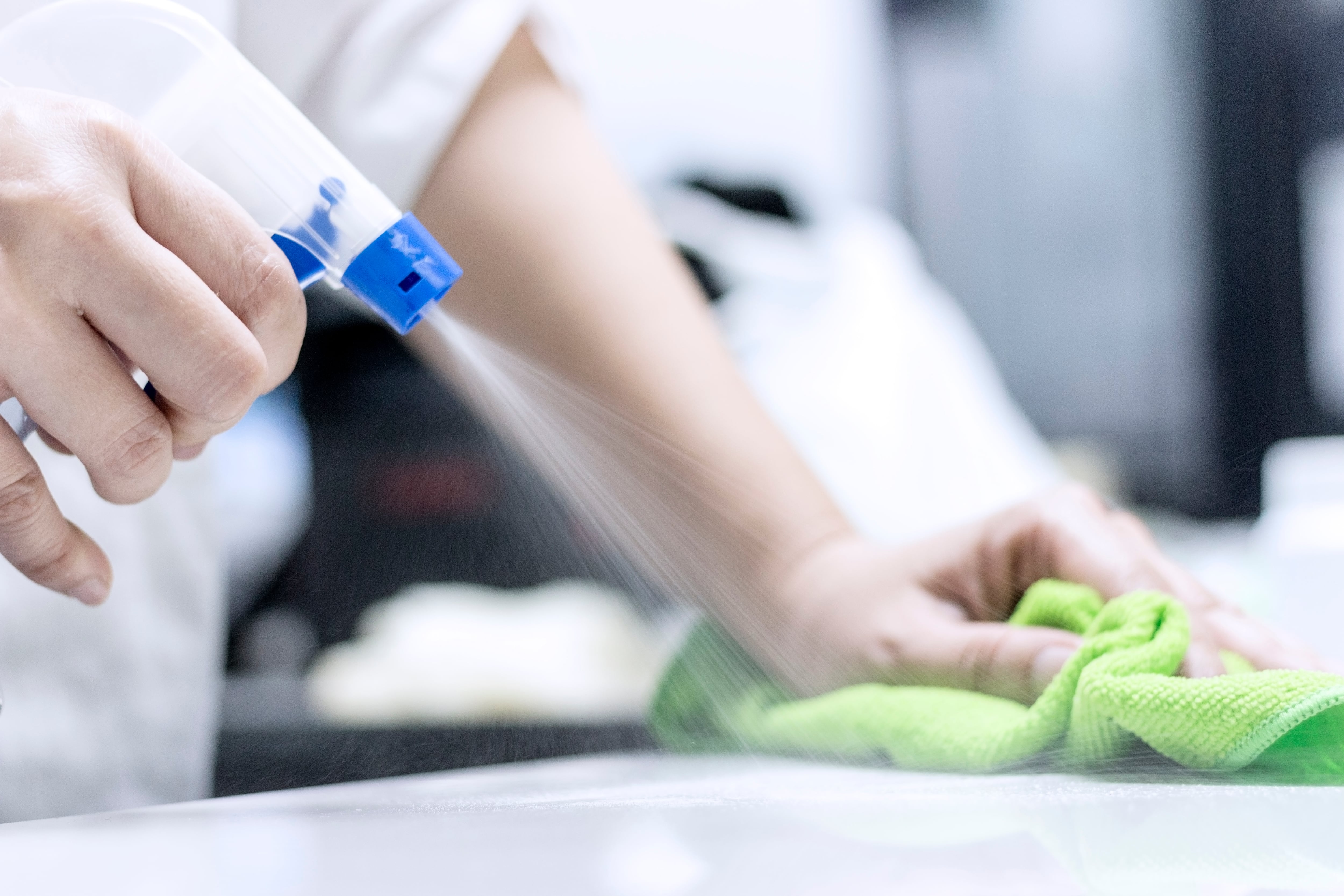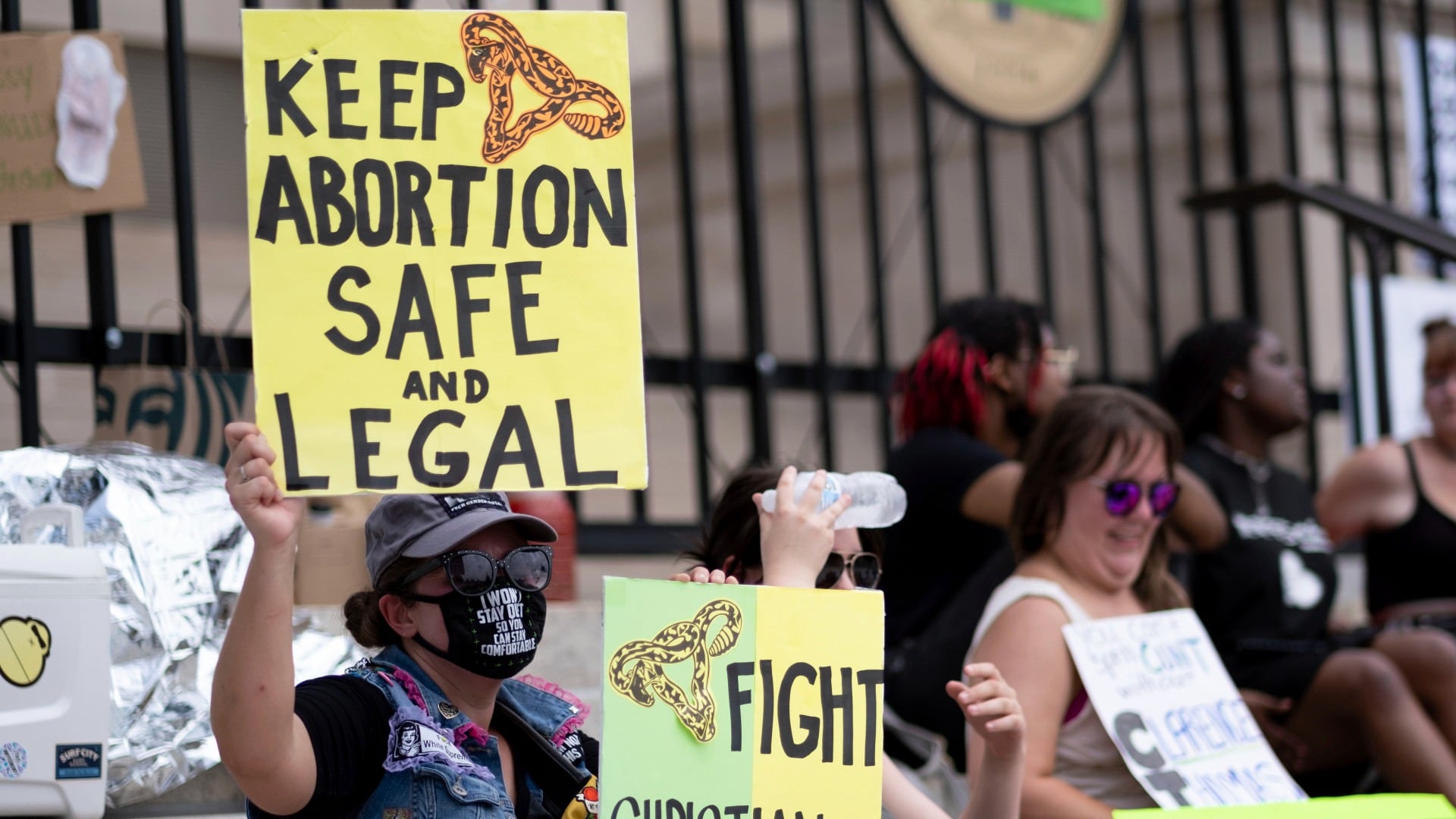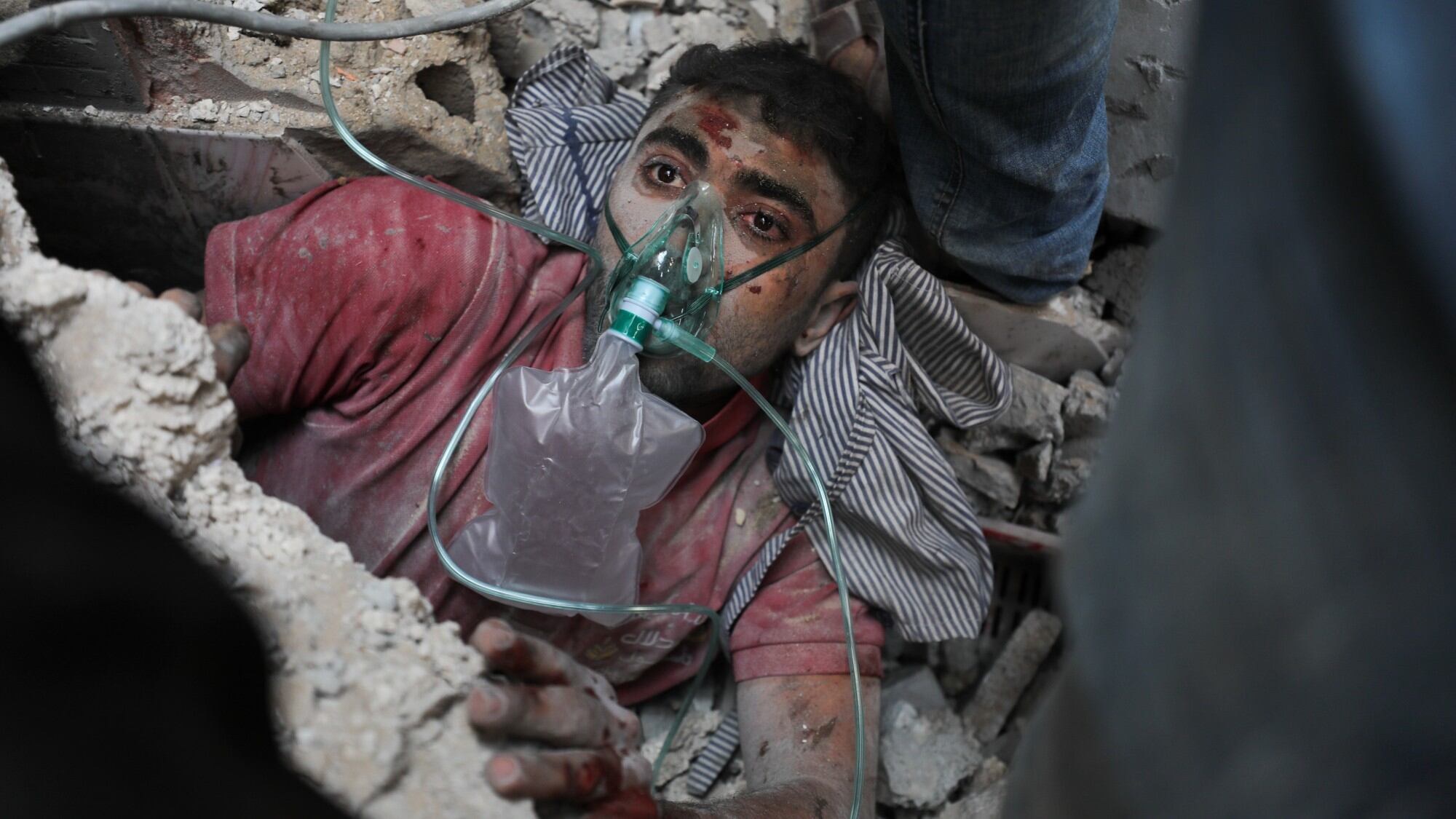By Frances D'Emilio
Italy’s No. 1 fugitive, a Mafia boss convicted of helping to mastermind some of the nation’s most heinous slayings, was arrested Monday when he sought treatment at a private clinic in Sicily after three decades on the run.
Matteo Messina Denaro was tried in absentia and convicted of dozens of murders, including helping to mastermind, along with other Cosa Nostra bosses, a pair of 1992 bombings that killed top anti-Mafia prosecutors — and led the Italian state to stiffen its crackdown on the Sicilian crime syndicate. He faces multiple life sentences that he is expected to serve in a maximum security prison and under the particularly restrictive conditions reserved for top organized crime bosses.
He went into hiding a year after those bombings while still a young man — but he was still considered one of Cosa Nostra's top bosses even as a fugitive. Hundreds of police officers were tasked over the years with tracking him, the last of three longtime top-level Mafia bosses who managed to elude capture for decades.
He is now 60, and his health condition helped investigators zero in on him, according to Carabinieri Gen. Pasquale Angelosanto, who heads the police force’s special operations squad.
“It all led to today’s date (when) he would have come for some tests and treatment” at the clinic, the Carabinieri general said.
Authorities did not say what he was being treated for, but he was captured at La Maddalena clinic in Palermo, an upscale medical facility with a reputation for treating cancer patients, and Italian media said he was undergoing treatment for a year.
During an evening news conference, authorities said Messina Denaro's treatment could continue at a hospital prison ward.
Investigators said he was unarmed and dressed like a typical patient at the clinic, though wearing a watch worth at least 30,000 euros (about $33,000).
"He didn't resist at all," Carabinieri Col. Lucio Arcidiacono told reporters.
A pair of Carabinieri officers, each holding an arm, walked Messina Denaro down the front steps of the clinic to a waiting black van in pouring rain. He was dressed in a brown leather jacket trimmed in shearling, a matching white-and-brown skull cap and his trademark tinted glasses. His face looked wan and he stared straight ahead.
Shortly after his arrest, the sun peeked through, and a rainbow could be seen in the sky over the clinic.
When dozens of police officers, wearing ski masks, converged on the clinic, local residents knew something big was about to happen. When Messina Denaro was brought outside, applause rang out on the sidewalks.
Palermo Chief Prosecutor Maurizio De Lucia told reporters that the fugitive had used the pseudonym Andrea Bonafede and had an Italian identity card in that name. He used the alias — the surname roughly means “good faith” in Italian — to book a morning appointment at the clinic.
In addition to convictions for the killings of prosecutors Giovanni Falcone and Paolo Borsellino, he was also found guilty of killing Falcone's wife and several of their bodyguards as well as the grisly murder of a Mafia turncoat's young son, who was abducted and strangled before his body was dissolved in a vat of acid.
He also was among Cosa Nostra bosses convicted of ordering a series of bombings in 1993 that caused fatalities and damaged the Uffizi Galleries in Florence, two major churches in Rome and an art gallery in Milan.
“We captured the last of the massacre masterminds” of the 1992-1993 Mafia killings, prosecutor De Lucia said. “It was a debt that the Republic owed to the victims of those years."
Italian Premier Giorgia Meloni tweeted that Messina Denaro’s capture is a “great victory of the state, which shows that it doesn’t surrender in the face of the Mafia.”
Monday's arrest came 30 years and a day after the Jan. 15, 1993, capture of Mafia “boss of bosses” Salvatore “Toto” Riina, in a Palermo apartment, after 23 years on the run. Messina Denaro went into hiding during the summer of that year.
The Italian Mafia boss who set the record for the longest time on the lam was Bernardo Provenzano. He was captured in a farmhouse near Corleone, Sicily, in 2006 after 38 years as a fugitive. Once Provenzano was in police hands, the hunt focused on Messina Denaro, who managed to elude arrest despite numerous reported sightings, including in northern Italy.
That all three top bosses were ultimately arrested in the heart of Sicily while they conducted clandestine lives for decades won't surprise Italy's police and prosecutors. Law enforcement officials have long said that such bosses rely on contacts and the confidentiality of fellow mobsters and complicit family members to move them from hideout to hideout, supply food, clean clothing and communication, and a code of silence known as “omertà."
But Messina Denaro, besides staying in hideouts in Sicily, also traveled abroad while a fugitive, including to Marseille, the French port city, where he underwent surgery some years ago, according to investigators.
Riina and Provenzano lived out the last years of their lives in the strictest of Italian prison conditions reserved for unrepentant organized crime bosses and refused to cooperate with investigators.
Some have speculated whether Messina Denaro might agree to cooperate with prosecutors in exchange for more lenient prison conditions.
During his years on the run, he had a series of lovers and passed time by playing video games, according to Italian media reports. Messina Denaro is believed to have fathered two children while a fugitive. One of his girlfriends was arrested and convicted of having hidden him for a time.
Right after he went into hiding, Messina Denaro sent a letter to his then-girlfriend that Italian news agency ANSA said read: "You'll hear talk about me, they will paint me like the devil, but it's all falsehoods.''
Wary of being located through cellphone use, Mafia bosses frequently resort to handwritten notes known as “pizzini.” When Provenzano was nabbed in his rustic hideaway, police found a stash of such notes.
On Monday, Italian state TV transmitted what it said was an audio recording of a 1993 appearance by Messina Denaro before a Sicilian court. A judge sought to confirm his identity and asked basic questions to fill out documents.
When asked his occupation, he replied “farmer” and added that his brother was a banker and his four sisters homemakers. For his residence, he cited Castelvetrano, a farm town near Trapani, which was his crime clan’s power base and where he was assured of logistics support during his time as a fugitive, according to investigators.
The brother was convicted years ago of Mafia association. One of the sisters was convicted of helping run the crime clan during Messina Denaro’s years on the run, Italian news reports said.
With the crackdown that began in the 1990s against Sicily's Cosa Nostra, the island's mafiosi started losing their dominance in Italy compared to other organized crime syndicates.
As the Sicilian Mafia was significantly weakened by a small army of turncoats, on the mainland, the ‘ndrangheta syndicate, based in the “toe” of the Italian peninsula, steadily eclipsed Cosa Nostra in reach and influence.
Unlike Sicily's crime syndicates, the ‘ndrangheta draws its foot soldiers based on family ties, leaving it less vulnerable to those who cooperate with investigators. The ’ndrangheta is now one of the world's most powerful cocaine traffickers.
But the Sicilian Mafia still runs drug trafficking operations. Other lucrative illicit businesses include infiltration of public works contracts and extortion of small business owners who are threatened if they don't regularly pay “protection money.”













